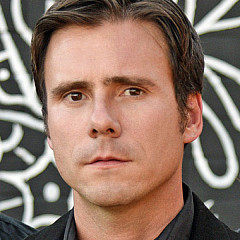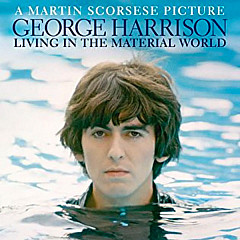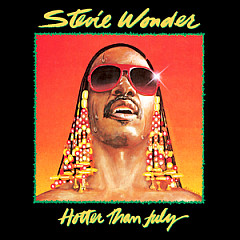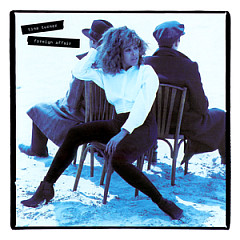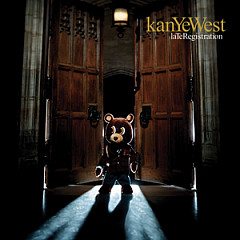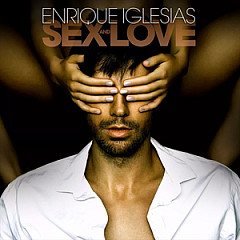Hobler confessed in this conversation that he had already had "two extremely large cups of coffee" that morning and apologized for all his "babbling." He charmingly talked about why he wanted to unveil his first album in an original way, the honest and raw place all of his song ideas are formed, and how he sometimes cannot resist stealing lines from books and movies.
 Laura Antonelli (Songfacts): You've been playing music for almost two decades and you used to be in a band called Sunroom. Why did you decide to release a solo album now?
Laura Antonelli (Songfacts): You've been playing music for almost two decades and you used to be in a band called Sunroom. Why did you decide to release a solo album now?Ryan Hobler: Well, my group kind of fizzled out. After a while everybody went their separate ways. I think we had gone as far as we could go with each other - everybody wanted to do different things.
I was the principle songwriter in Sunroom and I wanted to just keep on growing. I still write all the time so I wanted to continue doing that. Plus, I'm a sound engineer, so I really wanted to take a different approach from the Sunroom stuff that was very bare-bones, almost like The Lumineers, really a stripped-down kind of acoustic sound. I really wanted to play with all sorts of fun production stuff that I do on a day-to-day basis and add that to a lot of the songs that I was writing, so that's the main reason.
Plus, in all honesty, it's a little easier being a solo artist for me personally than being in a band. It's just clear who the leader is and it's kind of easy to negotiate. A little easier than a band when you have three heads rather than just one head [laughs].
Songfacts: You're premiering a new song every month from this album. Why did you decide to do that?
Ryan: I think the main reason I wanted to do that was that I wanted to keep myself on my toes. I just wanted to continue to be working on new music every single month and I thought that was a very fun, creative goal. That's pretty much why I wanted to do it. I thought it would be fun to put it out there that way.
It's weird because a lot of my friends are singers and songwriters and even before with various groups that I've been in, you spend so much time locked up alone and not engaged with the outside world, with your music and creating your music in a studio. It just felt very fresh for me to put it out there. Very alive. As soon as it's done, then we're putting it out there.
Songfacts: And you get instant feedback right away.
Ryan: Yeah, it's a lot of fun and it's somewhat daunting too. For me anyway, it's a little bit of a tightrope walk because I have a day job and I'm juggling a lot of things in life [laughs], so it's not my principle work at the moment. So that's been a great goal for me to keep fresh and keep on my toes.
Songfacts: Andy Baldwin is producing the album and you said in an interview that it's been magical working with him. What has made it such a positive experience?
Ryan: He's just a wonderful, wonderful person. He pretty much looks at everything with this almost childlike positivity. He looks at things that I would look at as problems as challenges. So he takes a lot of the negativity and kind of insecurity and anguish that I have [laughs] and he just completely extinguishes it. We get into the studio and I bring him a bunch of songs that are for the most part done and arranged. Then he does all of his mixing magic and he turns them into something that I can't even believe. It's just unreal watching him both as an engineer and as an artist. Just watching him work and seeing him adapt to even little problematic recordings, dirty sounds, things that I don't particularly find savory in our production. He turns minuses into pluses automatically. He does it totally nonchalantly. And he's just so cool.
Songfacts: The album's not done yet but you're going to call it The Elusive Yes. Why did you decide to name it that?
Ryan: Well, partially because it's a little bit of a joke because since we're putting out one song per month, it's kind of non-committable. It's like committing but at the same time it's evolving. It's eventually going to get there into a full album so partially because of that.
And then it also just seemed like an appropriate phrase for me personally. The Elusive Yes came into my head one day and it seemed appropriate because I've been non-committable in the past and I've kind of just been like, "Ahhh, maybe I won't do that. Maybe I won't." I've come to a change in my life where I just feel very open and I feel very willing to be afraid and willing to be more daring with music and putting it out there. It's kind of the process that took me to this point. Does that make any sense?
Songfacts: Yeah, it makes total sense. Do you have a specific theme in mind for the album or has one revealed itself to you through the songs or it's just a compilation of songs?
Ryan: I think the overall concept is kind of tied into the title. It's just that timid opening and willingness to be open to new experiences and the embracing of life. I think for a long time in my personal life I was not much of a risk taker, not much of a go-getter. That makes me sound incredibly boring [laughs]. I guess I was a little more willing to say no to things right off the bat.
Lately, I've been in this really wonderful phase. Andy Baldwin is a big part of that, the way he looks at the problems just in the studio and in life in general. When we're in the studio, we'll go out and we'll have dinner. We'll have lunch. We'll drink some wine. We'll hang out for a couple of days and his attitude is completely opposite to mine. He's totally open, totally not as wound up as me. He's a totally loose guy and I've been trying to be a lot more like that. He came into my life around a time when I was trying to be more like him - be more like that type of person. Since I've committed to doing that, I've been very happy. It's been really exciting.
I've been meeting a lot of new people, so the overall theme and concept of the album is tied to the title and just about being open and embracing what comes to you, and not as you want it and not what you expect it to. That's the more concise version after all my rambling [laughs].
Songfacts: Describe your songwriting process. Do you write the music first and then the lyrics or vice versa?
 Ryan: I do a little bit of both. Sometimes I start off with some sort of rhythm and some chords and then I add a melody. Other times it's the opposite where I come up with a melody and then I'm kind of arranging to that so it's a little bit of a mixed bag.
Ryan: I do a little bit of both. Sometimes I start off with some sort of rhythm and some chords and then I add a melody. Other times it's the opposite where I come up with a melody and then I'm kind of arranging to that so it's a little bit of a mixed bag.Usually the principle place where it starts is just a very raw and honest feeling, whether that feeling is happy, sad, contemplative, or whatever. That's usually where it starts and sometimes it's great, and in 15 minutes I'll have a song. Those are beautiful little moments. One of my songs that I've released so far is called "All Along." That was actually one of those songs where it came together and just kind of appeared, which whenever that happens that's always a wonderful gift. And then other songs are more of a writing exercise where I have an idea and maybe inspiration doesn't come as quickly, but it all adds up in the end.
Songfacts: You mentioned the song "All Along," which has extremely honest and emotional lyrics. It's about a dream you had about your grandfather who was tragically murdered when you were five years old. In an interview, you said that you never looked at the world the same. Was it difficult for you to write about such a personal experience?
Ryan: Yeah, to be honest, it was very difficult and sometimes even when I'm singing that song I get a little swept up in it. I get kind of emotional when I'm just repeating the words and I go off into a weird space. I usually call it "getting in the zone" up onstage where you just kind of forget that you're there. I don't know if that's a good way to describe it.
And then the funny thing about writing that song too is that I'd wrote that song in the morning last year and then in the evening I went out on this crazy bachelor party for my friend. It got pretty nuts. I was out really late and it was such a weird yin yang day because it started from this really sensitive, raw, songwriting place and then it turned into this completely debaucherous evening out with the guys. It couldn't have been a more strange juxtaposition of a day, but it was great. It was a wonderful day [laughs].
Songfacts: There are two different versions of "She Came Along." One of them is with your old band Sunroom and then there's a new solo version, so explain the evolution of that song.
Ryan: Yeah, it's very funny. There are going to be a few songs off of that Sunroom EP that will appear on the new record and "She Came Along" is one of them.
So the new version of "She Came Along" is essentially the studio dream version that is the complete opposite of the Sunroom record. The Sunroom EP was all recorded completely live and in one take. This new version of "She Came Along," the vocal, guitar, bass, and drums were all recorded live and that's just the take. I still do that quite a bit. There's something that's very natural to me about it and there's something very exciting about recording that way because it just is what it is. It's like a picture taken of a moment in time and I love that. Even if your hair's not looking as great or you don't get that picture from the right angle. It's that picture and that's the picture that represents that moment in time, and that's a perfect picture for that time even if the picture is not actually perfect. So the song became a nice new version of it. The arrangement became a way to explore and push some of the ideas that were developed when we played that song in Sunroom to the limit in the studio, adding extra vocal parts, adding a melodica, adding an accordion, and all these other things that weren't necessarily present in either the Sunroom EP or the Sunroom live show.
Songfacts: What inspired the song?
Ryan: "She Came Along" was inspired probably from my first love. It's sort of how I met this woman in high school and I was basically drunk and she came and found me.
Songfacts: So it's based off of a true story?
Ryan: Yeah, I call it my first nostalgic love song. It's pretty straightforward that one.
Songfacts: On your website there are Sunroom songs streaming on it like "Suit and Tie," "Afraid of the Moon," "Get There," and "How You Look at It." And you said that you're going to use other Sunroom songs from the EP on The Elusive Yes? Or throughout your career they're going to show up?
Ryan: Yeah, I still love all those songs. I've written a lot of songs since that EP and more of the newer songs are going to appear, but I wouldn't be surprised if I go and revisit some of those ones just because I really enjoy them. There's another one called "Down Came the 4th Wall" that's a single I already finished for The Elusive Yes album. I have new recordings of "Suit and Tie" and some others in the works, but I don't know if they're going to make it for this album. We'll have to see because there's a lot of new fun stuff that I either get distracted by or just more excited about because they're fresher to me, but I love those tunes. I still think they're fun. "Suit and Tie" I get a good response from particularly when I play it live. A lot of people seem to dig that song. Same with "Down Came the 4th Wall," so I definitely think those will be on The Elusive Yes.
Songfacts: You've spoken various times in interviews about being influenced by movies, books, and philosophers. The song "Got a Ways to Go" was inspired by the book The Road by Cormac McCarthy. What is it about books and movies that resonate so much with you?
Ryan: Hmmm. [Long pause] That's a very interesting question. I think I've never thought of that, to be honest.
Well, I'm a huge movie fan and I'm a huge book fan so that's probably first and foremost the main thing. I spend a lot of time watching films and reading books. And then also just copying, analyzing, and reading about the themes and what's happening and trying to understand what's going on in them.
I'm totally influenced by music but I feel like the form of books and film is so much larger than a song. You have more time when it comes down to it. You have two hours or an hour-and-a-half for a movie. And then 100 to who knows how many pages for a book and how many hours that it takes you to read it. But you can have so much detail on the page, and then you can have so much detail in the dialogue, in the music, and in the visuals in a film. It's very theatre of the mind for the book and then it's just pure theatre for films. So it's very easy for me to be inspired by those two mediums just because it's all right there and it's larger, and I guess I just respond to that quite a bit.
Sometimes I sit watching movies at home and I have a little notebook. I write little notes about a movie that I like or a little piece of dialogue that I like, and I never quite use them as verbatim lyrics so to speak. I just keep them in this little notebook of mine and I reference them and they kind of pull me back removed from the film days, weeks later. Whenever I'll look back through my notebook and I'll be like, "Oh, that was something," and then it will inspire something in me. I do the same with books, too. I'm a real nerd because I'll read a book and throughout the entire reading, I'll be underlining passages, documenting pages, and usually just pieces of the work that are what I consider to be great writing or just particularly interesting thoughts. And then I transcribe those thoughts into a notebook. It's like a nerd. It's like doing a book report. I look back into that notebook as well later on.
I think I got called out actually once by somebody who comes out to my shows fairly often. He called me out on my song "Suit and Tie." There's a line in the song that's pretty close to a line in Life of Pi by Yann Martel. He called me out and I was like, "Shoot" [laughs]. He was exactly right. I have that line written down in my book. I think it's on like page five of Life of Pi. There's something about a tie being a noose hanging upside down or something like that. I totally ripped that off from there. My friend Nick is the guy who comes out to my shows. He called me out and was like, "Dude, is this the line that you stole this from?" And he quoted the line from the book, which I don't remember off hand in an email to me. I was like, "You got me, man." I try not to do that, but that one was just too good to pass up.
We tried to do a little bit of that with the dances in the video. Me and my friend Einy, who's the dancer and the choreographer in the video, came up with this thought that that the dances or the movements because you don't really see too much of the dances. The way we edited it, we cut out a lot of the dances, which is probably good because I'm a terrible dancer and she's a fantastic dancer. It probably would've looked really bad. But there are certain things in the video like when she'll put her hand up softly on my cheek and you can clearly see through the movement that it's just a gentle touch, but I respond to it by being pushed away as if she had punched or slapped me. And that's what we were going for with the video to illustrate that sort of same feeling that these two people are trying to communicate and be good to one another, and they're actually hurting each other.
Songfacts: Yeah, it looks really cool. You actually wrote a song called "I Have Love, I Have You" for your wife that was also inspired by the movie Punch Drunk Love, the movie helped you finish the song. And apparently people always bugged you about recording it. Did you ever end up doing that?
Ryan: I did! Yeah. That's funny. I was wondering, "Wait, how did you know about that one?" Did you read if off my website or something?
Songfacts: Yeah, I read your blog about it.
Ryan: Oh, cool! Yeah, that's probably going to be one of the next three songs that I release. I don't know which one it will be yet.
But, yeah, that's a song I wrote for my wife on our wedding day. And that was probably the biggest and most challenging songwriting exercise that I've ever had to do. I was super nervous about it and then it turned out very well. I played that song at our wedding. She didn't know about it. It was a surprise. She cried and she was really happy with it, and I thought that was it. I thought, "Alright, well, there's a nice little gesture from your silly songwriter husband and that's yours, and there we go."
But then a couple of months past and I played a few shows, and she's like, "Why are you not playing my song?" and I was like, "What? That's your song. That's not everybody else's song. That's your song. I'm not going to play that." She was like, "Why not?" and "You got to play that song!" So I was like, "Alright, I'll play it." It's a funny song. I get a lot of awws at the end of it. It kind of slows down and then at the very end everybody's like, "Awww!" So that's a good response, I guess, because it's actually very vocal and I know exactly what they mean.
June 13, 2014. Find out more about Ryan Hobler at ryanhobler.com
More Song Writing



